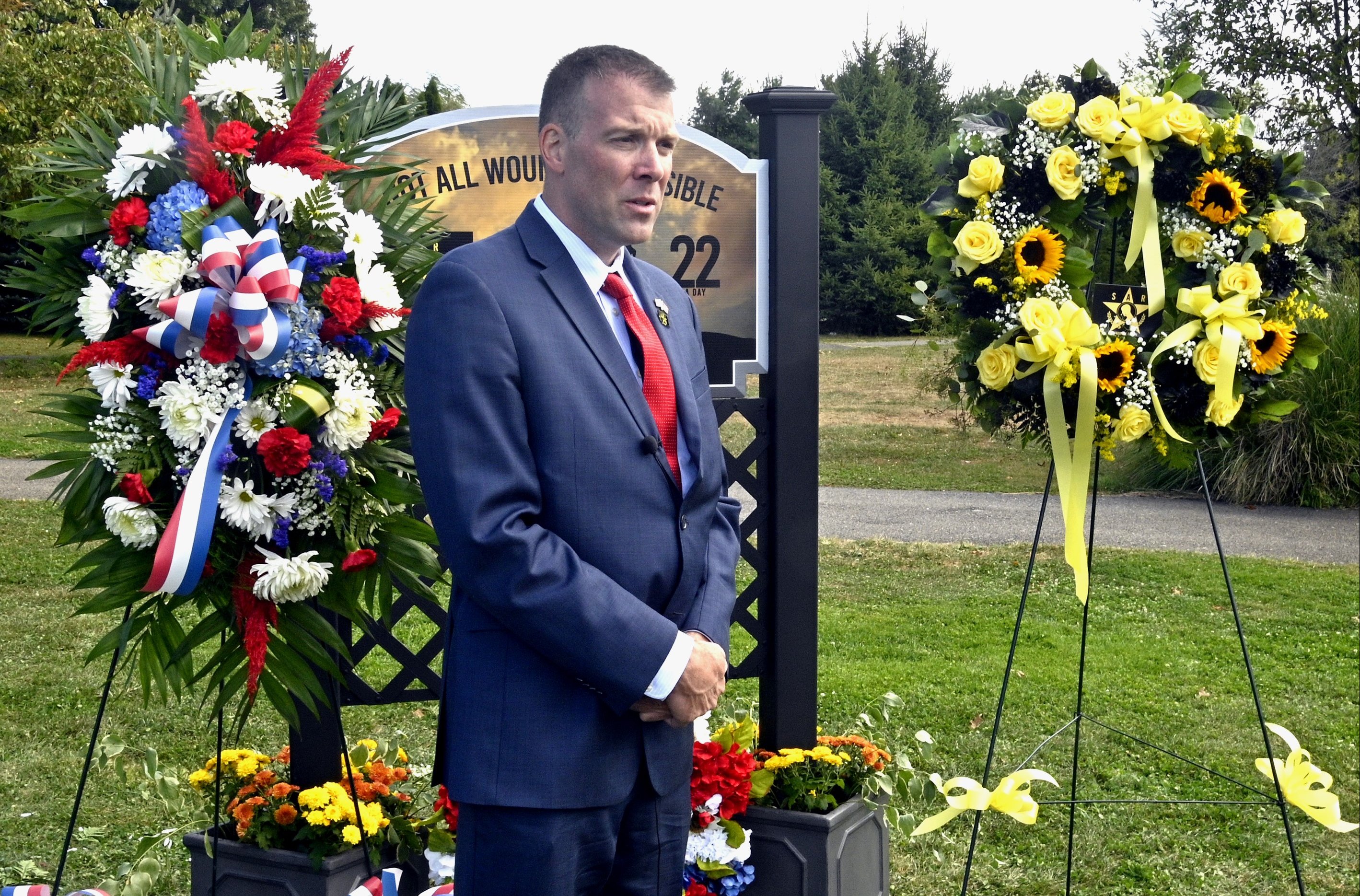Suffolk County Legislator Chad Lennon Champions Support for Veterans & Trafficking Survivors

Suffolk County Legislator Chad Lennon has not been in the Suffolk County Legislature that long, but he is making his mark as a champion of veterans and human trafficking survivors.
“I am a veteran of the Marine Corps and also am a Marine Corps Reservist,” says Lennon, who went through law school on the GI Bill and worked in a veterans’ clinic while in law school. “I want to help people who do not understand what veterans face, what they are going through.”
He says a perfect example of those who don’t understand are employers. For example, the Uniformed Services Employment and Reemployment Rights Act covers both active-duty service men and women and those in the reserve. They have certain rights and job protections.
“The cost of war is not just in manpower, equipment and those who serve,” Lennon says. “There is a cost to the families of servicemen and women. There is a higher rate of suicide, homelessness and divorce of those who serve. What many don’t understand is that it is a buildup of things they face and how they are affected by them. This is also the case for their spouses who spend so much time by themselves.”
He added that the constant moving often leaves many spouses with the lack of support that most people can depend upon.
“Whether they are stationed outside the United States or inside, this can be true,” Lennon said. “Something else that doesn’t get discussed is the difficult transition from military culture to civilian culture. In the military there is discipline, and everyone has a lane and stays in their lane. In civilian life, everyone is in everyone else’s lane. It is an adjustment.”
He says for someone coming out of military service something as simple as a haircut can be difficult.
“In the military, you don’t have to think about what kind of haircut you want,” Lennon says with a laugh. “You wear your hair a certain way, and there’s nothing to think about. It is the same way with many decisions in the military that you must approach differently as a civilian.”
He added that employment is another multi-layered aspect of civilian life.
“Many service people don’t realize that they have transferrable skills,” Lennon says. “They have organizational skills, leadership skills and other valuable skills, but they, and the prospective employer, may not realize it.”
One of Lennon’s goals is to offer veterans a one-stop-shopping type of service. This can include housing assistance, mental health care, suicide-prevention care, disability assistance and even assistance in acquiring a service animal.
On the one hand, those who serve have given up a great deal. On the other, the world has opened up to them in a way they may never have expected. Unfortunately, that enlarged world view can come at a cost.
“We as a nation must partner with countries that may not share our values,” Lennon says. “They may have practices that you don’t agree with but cannot challenge. These are things you don’t’ want to, can’t talk about.”
Another aspect that those outside the military may not understand is the need to hide their pain, to hide when they are hurting in some way.
“We’re trained to ignore pain, to not show hurt,” Lennon remembers. “Others are depending on you and if you aren’t dependable, you’re hurting the entire team. If you’re not there, if you’re shot, that is a gun we lose. You may lose fire suppression. We’re trained to toughen up. Sleep is a crutch; food is a crutch. Having to say something is wrong is not easy to do.”
Lennon explains that all these issues affect how well a service person transitions to civilian life. And, while he doesn’t want to be considered the expert on all things veteran, he is willing to help his fellow legislators better understand how they all can help with that transition.
“Often we have the right intentions, but not the right language,” says Lennon, whose other major interest is to end human trafficking and help those who have been trafficked. “It is nice to hear people thank us for our service, but you need the action behind the words. It can be a slap in the face sometimes to hear those words and then have someone want to deny or diminish veterans’ services.
“The needs of veterans are layered,” Lennon explains. “Suicides, homelessness, unemployment, they’re all wrapped up together. We need to listen to our veterans. We also need to understand what the endgame is when we send our troops somewhere. The games we play are dangerous and could cost us everything. More important, those who choose to serve, the soldiers we send to war, must be supported when they return home. We as Americans must stop hiding from what we find difficult to hear. You have to look problems in the face, if you want to fix them.”
Those with concerns, who need services and or who know someone who needs assistance, can reach out to Lennon’s office at 631-854-1600 or chad.lennon@suffolkcountyny.gov.
Todd Shapiro is an award-winning publicist and associate publisher of Dan’s Papers.



